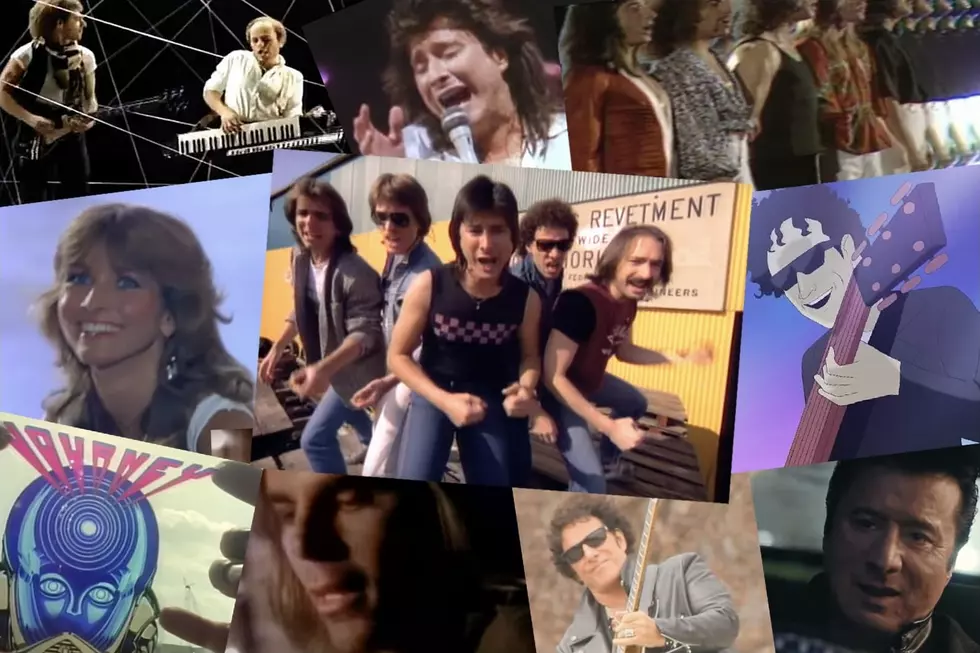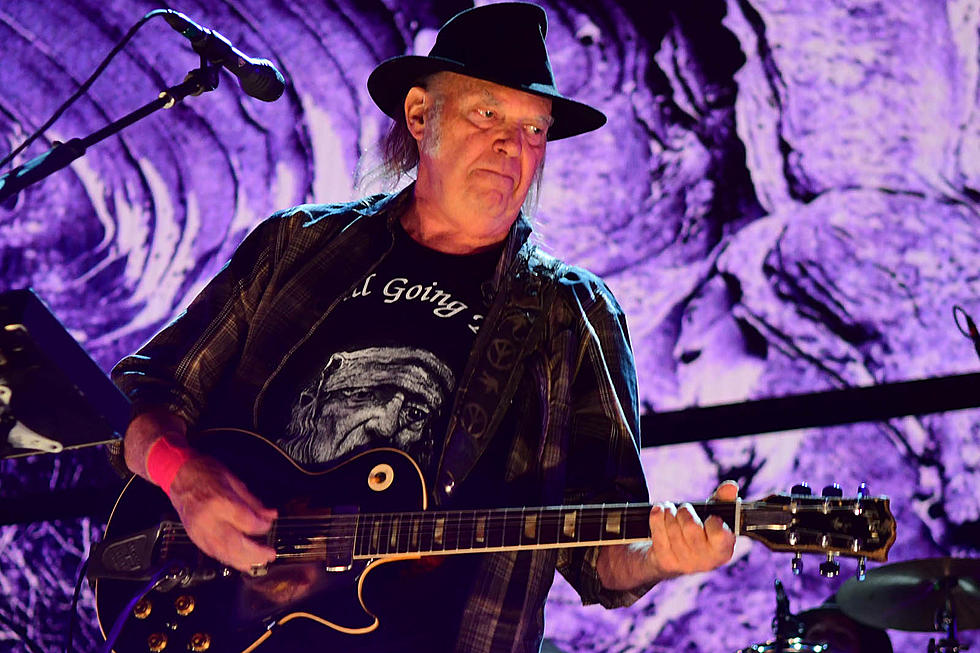
The BBC Will Resume Playing Neil Young, Journey and the Doors
7/29 UPDATE: According to Vintage Vinyl News, the following statement was released by the BBC: "The BBC has been able to find a licensing solution by working together with the music publisher Wixen Music UK and with the MCPS. Works composed by the Doors, Journey and Neil Young are now mechanically licensed under an arrangement via MCPS and are available for use on BBC Radio and for the consequent download on BBC Radio iPlayer. The licensing solution enables us to include the works on both BBC radio and the BBC’s radio catch-up services, however the rights are not available for television or other audio visual use via the BBC’s collective licensing arrangements with MCPS." There is no mention of Raitt in the statement.
Without the music of Neil Young, Journey and the Doors, classic rock radio would begin to collapse upon itself like a dying star. In Britain, however, DJs at the BBC have found themselves operating under a ban impacting all three of those acts, in addition to Bonnie Raitt.
At issue is the withdrawal of those artists from the Mechanical Copyright Protection Society, or MCPS for short, the copyright collection society and performance rights organization that handles payment of mechanical royalties for airplay in the U.K. — which, as the Guardian recently pointed out, "means the BBC has no means of paying the artists for broadcast of their music, and so it cannot play their music without breaching copyright."
The Guardian report points out that although the BBC ban is new, the artists affected have been out of the MCPS for some time: Young withdrew in 2002, the Doors followed in 2006 and Journey pulled out in 2013. That apparently wasn't enough to merit notice from the BBC before, but now that the broadcaster is preparing an app that will allow listeners to download shows for offline listening, it's become a thornier issue.
As the Guardian notes, none of the acts involved are exactly staples of the BBC's daytime radio diet, but in the sampling era, it's become quite a bit more difficult to remain vigilant about things like this; the article lists songs by Jay-Z and Skrillex that incorporate elements of Doors songs, while Young's catalog has been covered by a wide array of artists.
The banned acts are all represented by a single company, Wixen Music, and a representative says they remain open to licensing their artists' songs on a case-by-case basis. "The BBC can use Neil Young and the Doors any time they negotiate a license with us to do so in a given program," insisted the spokesperson. "All we are saying is that we won’t pre-approve uses or fees if the clients have not had an opportunity to review and approve the uses and fees."
See Neil Young and Other Rockers in the Top 100 Albums of the '70s
You Think You Know Journey?
More From Ultimate Classic Rock









